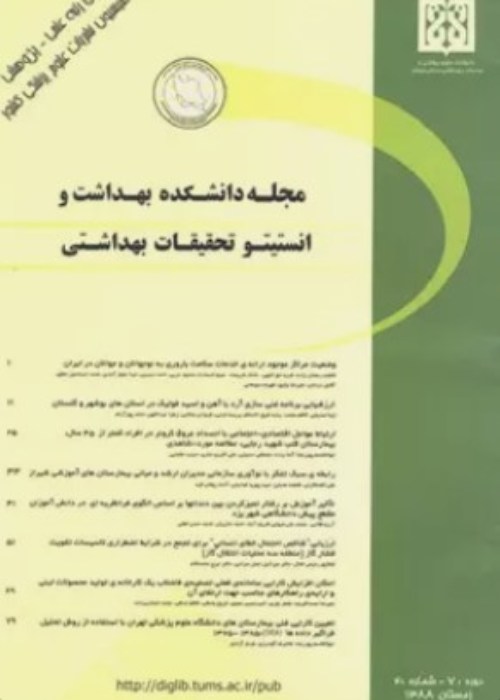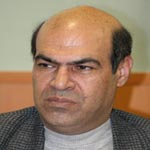Postoperative survival after relapsing in gastric cancer patiens and factors related to it
Author(s):
Abstract:
Background And Aim
Like other cancers, gastric cancer is due to uncontrolled growth of tissues. Although there are different therapy methods to treat it, such as surgery, radiation therapy, chemotherapy, and multimodality therapy, relapse and death may occur. Reports show that in Iran gastric cancer is the first cause of death among deaths due to cancers. The purpose of this study was to determine the two-year survival rate after relapsing and its associated factors among gastric cancer patients who had undergone surgical treatment in Iran Cancer Institute, one of the most important cancer treatment centers in Iran. Methods and Materials: A total of 330 patients with gastric cancer who had been admitted to and operated on at the Iran Cancer Institute between January 1996 and April 2000 were enrolled in this study. The patient's life expectancy after relapse was determined. Survival was defined as the elapsed time between the two successive events, relapse and death, neither of which can be determined exactly; therefore the data are doubly censored failure time data. Thus, the relationships between life expectancy at relapse and such variables as age, gender, and factors related to the disease, such as the cancer site, pathologic type, stage, and sites of metastases were determined using the Cox proportional hazards model.Results
The two-year survival rate after relapsing and the median life expectancy after relapsing were 15% and 10.15 months, respectively. Univariate analysis showed that except disease stage, no other variable (age, gender, cancer site, pathologic type and sites of metastases) affected life expectancy after relapsing significantly. The Cox proportional hazards model for doubly censored failure time data showed that age, gender, and pathologic type had the highest influence, in a decreasing order, on the rate of survival after relapsing. Conclusion
Two-year survival rate after relapsing is very low in gastric cancer patients. One of the most important reasons seems to be delayed consultation and diagnosis. Most patients seek medical advice first with the disease in the late stages, when most have lymph node, liver or even distant metastasis which makes treatment even more complex, and when the risk of relapse and death would be increased. Thus, early diagnosis and therapy for a common stomach illness could help prevent a potential gastric cancerLanguage:
Persian
Published:
Scientific Journal of School of Public Health and Institute of Public Health Research, Volume:7 Issue: 1, 2009
Page:
27
magiran.com/p666095
دانلود و مطالعه متن این مقاله با یکی از روشهای زیر امکان پذیر است:
اشتراک شخصی
با عضویت و پرداخت آنلاین حق اشتراک یکساله به مبلغ 1,390,000ريال میتوانید 70 عنوان مطلب دانلود کنید!
اشتراک سازمانی
به کتابخانه دانشگاه یا محل کار خود پیشنهاد کنید تا اشتراک سازمانی این پایگاه را برای دسترسی نامحدود همه کاربران به متن مطالب تهیه نمایند!
توجه!
- حق عضویت دریافتی صرف حمایت از نشریات عضو و نگهداری، تکمیل و توسعه مگیران میشود.
- پرداخت حق اشتراک و دانلود مقالات اجازه بازنشر آن در سایر رسانههای چاپی و دیجیتال را به کاربر نمیدهد.
In order to view content subscription is required
Personal subscription
Subscribe magiran.com for 70 € euros via PayPal and download 70 articles during a year.
Organization subscription
Please contact us to subscribe your university or library for unlimited access!



